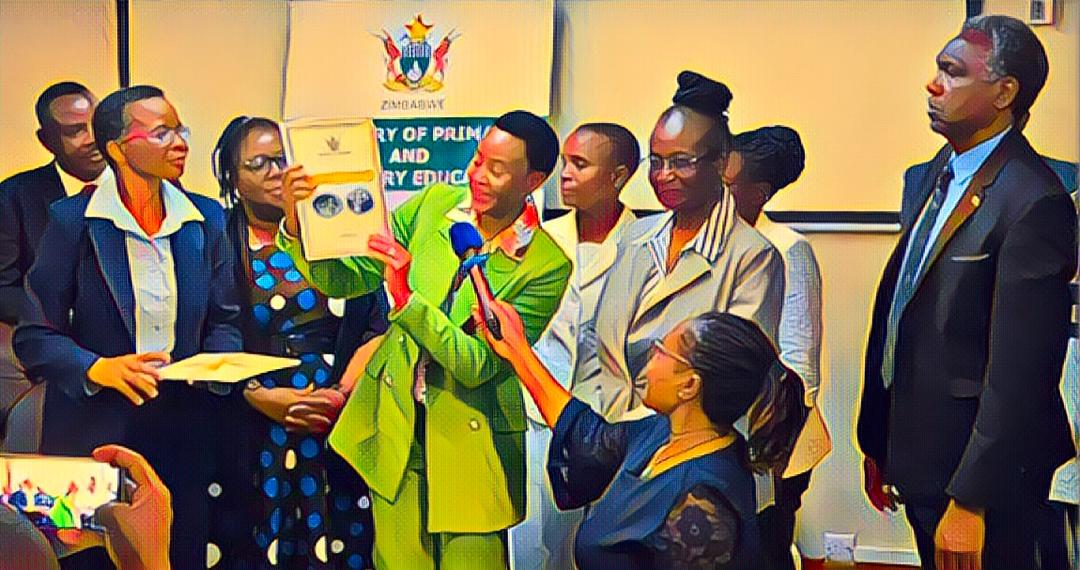The Zimbabwe Early Learning Policy (ZELP) is a five-year plan that will establish a strong foundation for the country’s education system and ensure that every child has an opportunity to learn from an early age.
The policy was launched by the Primary and Secondary Education Deputy Minister Angeline Gata at a ceremony in Kadoma last week. She said the policy was a response to the call made at the Transforming Education Summit in 2022 to accelerate foundational learning and enhance literacy and numeracy skills.
“The new policy is an intention to support our children and to bind that children must go to ECD (both A and B) as a prerequisite for formal education which starts at Grade 1. I believe this will help in our pass rates. If we have a strong foundation in our children, even their orientation will go a long way,” she said.
What is ZELP?
ZELP is a comprehensive framework that covers various aspects of early learning, such as the quality of teaching and learning, children’s health, nutrition and care, family and community support, financing and resource mobilization, managing emerging situations, and monitoring, evaluation, and research.
The policy also recognizes the importance of inclusive and equitable early learning opportunities for all children, regardless of their background, location, gender, disability, or other factors.
ZELP is supported by a detailed and costed implementation plan that outlines the roles and responsibilities of different stakeholders, such as the government, development partners, civil society, private sector, media, and parents.
The policy is aligned with the National Vision 2030, the Sustainable Development Goals, the African Union Agenda 2063, and other regional and international frameworks.
Why is ZELP important?
According to the World Bank, investing in early childhood development is one of the most effective ways to reduce poverty and inequality, and to promote human capital and economic growth.
Studies have shown that children who receive quality early learning experiences are more likely to succeed in school, complete higher levels of education, earn higher incomes, and contribute positively to society.
However, in Zimbabwe, many children face multiple challenges that affect their early learning outcomes, such as poverty, malnutrition, disease, violence, displacement, and lack of access to quality education and care services.
According to the 2023 Multiple Indicator Cluster Survey, only 38% of children aged 3 to 5 years attended any form of organized early childhood education program, and only 53% of ECD teachers were qualified.
ZELP aims to address these gaps and challenges by providing a coherent and coordinated approach to improve the quality and access of early learning in Zimbabwe.
How will ZELP be implemented?
The implementation of ZELP will be led by the Ministry of Primary and Secondary Education, in collaboration with other ministries, such as the Ministry of Health and Child Care, the Ministry of Public Service, Labour and Social Welfare, and the Ministry of Finance and Economic Development.
The ministry will also work closely with development partners, such as the United Nations Children’s Fund (UNICEF) and the United Nations Educational, Scientific and Cultural Organization (UNESCO), who have provided technical and financial support to the development and launch of the policy.
The policy will also involve the participation and engagement of civil society organizations, private sector actors, media outlets, and parents and communities, who will play a key role in creating awareness, mobilizing resources, and providing feedback on the implementation of the policy.
It would be monitored and evaluated regularly to track the progress and impact of the interventions and to identify and address any challenges or gaps that may arise.
The policy will also be reviewed and updated periodically to ensure its relevance and responsiveness to the changing needs and contexts of early learning in Zimbabwe.
ZELP is a hope for the future of Zimbabwe, a future where every child has the opportunity to learn, grow, and thrive.
Source: Newsday Zimbabwe


